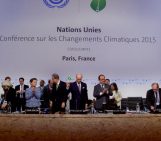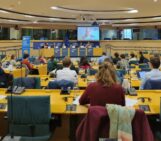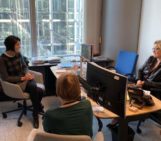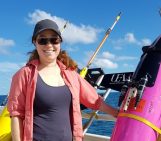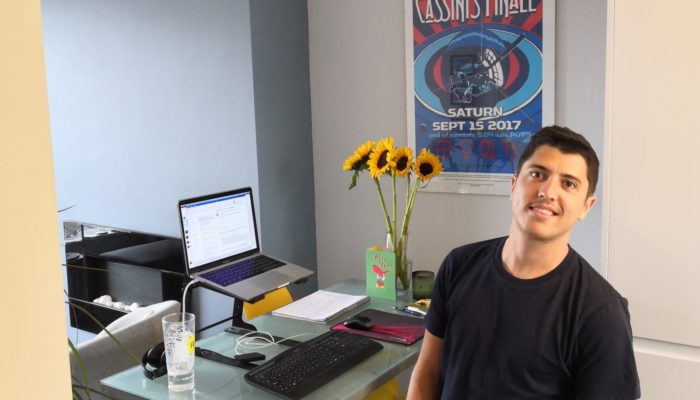
My name is Ned Staniland and I am a third year PhD student in space physics at Imperial College London. I study the magnetic field of Saturn using data from the Cassini-Huygens mission that was launched in 1997. In July 2020, I was lucky enough to be EGU’s first intern where I worked in their policy and communications team.
Finding an Internship
Since the beginning of my PhD, I have kept an eye on career alternatives outside of academia. I have always been interested in politics and when I first heard about science policy I was really intrigued. I didn’t really know what a career in that field entailed, and when I discovered that my university, Imperial College London, offered funding to students to work in the third sector for a month in the form of the Professional Project Fund, I contacted a handful of science organisations with policy officers to ask whether there were any internship opportunities in their policy team and EGU responded! However, this all happened in March at the beginning of the global lockdown following the COVID-19 outbreak. This meant that I would have to do the internship remotely. Chloe, the EGU’s policy officer, was really flexible and said that this was absolutely fine and in July I started as their first ever intern!
Choosing a Project
The EGU were planning an event called ‘Integrating science into the EU Green Deal’ which would take place in September. My job was to help to create a document that will be launched at the event. They also suggested some other projects, including developing their database of expertise, but I decided that working on this event would be best for me. I wanted to make sure that the project I was doing was something that I sought to gain experience in. My advice to anyone who wants to intern, is to be specific in your goals and not just take whatever is given to you at first. It’s your internship and you are giving your time, so make sure the project is right for you.
The EGU event aims to promote collaboration between geoscientists and EU policymakers in developing the EU Green Deal, an ambitious strategy for turning climate and environmental challenges into opportunities to make the EU’s economy sustainable. The document I worked on aimed to outline the specific areas of the Green Deal that the EGU and its members can provide expertise. I was excited to see how the latest geoscience research could be used to shape EU policy. The document was a big step away from my day-to-day work during my PhD. I knew that there wasn’t going to be a section on how Saturn’s magnetosphere would affect climate change! Something that excites me about science policy is its variety, so I couldn’t wait to get stuck in.
What is the European Green Deal? From the European Commission.
The Internship
The internship began with an introduction to the EGU team over Skype. It was strange to know that I would never meet the team in person, but I was excited to get started. My first task was to read the Green Deal and the various strategy documents associated with it. I had to be careful not to miss anything relevant to the EGU member’s expertise which is difficult considering they have 22 scientific divisions covering a wide range of topics. I also identified the latest relevant geoscience research. For instance, EGU members have worked on smart farming, where the agricultural industry is managed using technology and data. This could support the Green Deal’s Farm-to-Fork Strategy that aims to make the European food network more environmentally friendly. Chloe and I organised a meeting with the president of the Soil System Sciences division to discuss our research and for them to highlight any areas we might have missed.
I discovered that as a policy officer, it is not your job to know everything about everything. Instead you identify the key areas in current policy that require specific expertise and you go and find those experts. Ultimately, you are a facilitator between scientists and policymakers.
Once I completed the research, for the next two weeks I wrote the body of the document and sent it to the team for multiple edits. During my internship, I also undertook other tasks to learn more about the day-to-day life of a policy officer. For instance, I researched open consultations being held by the EU that the geoscience community would be interested in. I also drafted tweets for the EGU’s Twitter feed which were sent to its 40,000 followers! I really enjoyed trying as many different things as I could during my internship to get an idea of what the different types of work I would be doing if I pursued a job in this field post-PhD. It allowed me to find out what I do and don’t like doing.
What I learned
The internship significantly improved my ability of working in a team. In my PhD, I mainly work on my own projects, but this was a great opportunity to work alongside others in a collaborative way. I noticed that I was comfortable asking more questions and sharing unfinished work. I learnt that sharing unfinished work makes sure it is going in the right direction and inevitably saves time.
I have also learned about the day-to-day work of a policy officer and what a career in science policy might be like. Understanding how organisations outside of political bodies can still influence policy has been really interesting and highlighted the importance of bringing together scientists and politicians, in order for real change to happen.
I really hope to keep in contact with Chloe and the team at the EGU and to see how the EGU continues to support the EU’s Green Deal. Thank you for this opportunity!

